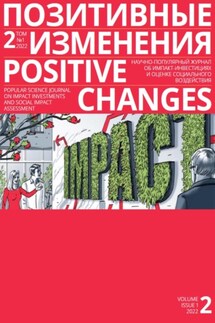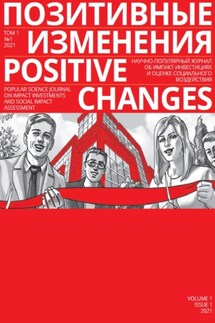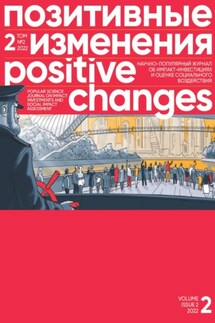Позитивные изменения. Образование. Школа будущего. Тематический выпуск, 2022 / Positive changes. Education. The school of the future. Special issue, 2022 - страница 16
Если сравнивать разные образовательные модели, то по каким критериям это можно было бы сделать?
Содержание образования, то есть блоки, из которых это все строится. Знания, умения, навыки, предметное содержание. Наверное, характеристика коллектива, то есть, кто школу наполняет, как они туда попадают. Корпоративная культура, какая она – демократическая, авторитарная? Стили общения между учениками и учителями – это больше коучинговая позиция или говорящая голова? Коучинговая позиция, конечно, предпочтительнее здесь, если все учителя как-то еще детей поддерживают, мотивируют.
Наверное, стили взаимодействия с родителями, обратная связь, коммуникация. Есть школы, где это вообще не принято.
Система оценивания – какое там оценивание? Вариативность – тоже одна из историй. То есть, насколько школа может быть гибкой, насколько она может под ребенка подстраиваться.
К какой образовательной модели ближе Школа будущего – финской, азиатской, международный бакалавриат?
Мне кажется, она ближе к какой-то скандинавской модели, финской, в частности. Это исключительно то, что я про это знаю, сидя здесь, внутри такой школы я не была. То есть это модель европейской школы, которая говорит: «Вот вам среда с возможностями, но в рамках одной школы ты можешь по-разному эти возможности брать. Если ты одаренный, хорошо, мы тебе выстроим трек. Если у тебя есть какие-то трудности, то ничего страшного». Для меня это такая вот, наверное, гуманная европейская школа.
The School of the Future is the School of Life and an Environment of Opportunities. Interview with Anna Vysotskaya
Natalia Gladkikh, Ivan Smekalin
DOI 10.55140/2782–5817–2022–2-S1–14–21
Every parent wants the best for their child, including a good education. According to a study by Skysmart, an online school for kids and teens, only 55 % of parents surveyed are generally satisfied with their children's schooling. The main reason for dissatisfaction is the lack of a personalized approach to the child. Educational consultants and coaches are there to help parents in choosing the best school. The editors of Positive Changes Journal talked to Anna Vysotskaya, a neuropsychologist and education expert who consults over 1,000 parents a year on choosing a school for their children.
Anna Vysotskaya
Natalia Gladkikh
PhD in Psychology, Leading Expert, Centre for Technological Innovations, а Institute of Social and Economic Design at the Higher School of Economics
Ivan Smekalin
Analyst, Positive Changes Factory
What are the most common requests parents ask you as a consultant?
I can quote the most popular query: "Help me find a school that will help my child get into a prestigious university on his/her own.” Few parents actually come in asking for "a school that will develop a personality." This is mentioned sometimes, but this is not really a popular demand. In short, most parents are just focused on academic knowledge. I think we are observing a substantial shift of our value system towards academic skills. I attribute this primarily to the fact that free education is currently leaving the market. Applicants have to compete hard to get a state-funded place at the university. We are not yet ready to accept this future expense as inevitable and to plan this as part of the process of raising a child. Accordingly, parents have a great deal of anxiety about whether they will be able to provide their children with a decent higher education.









